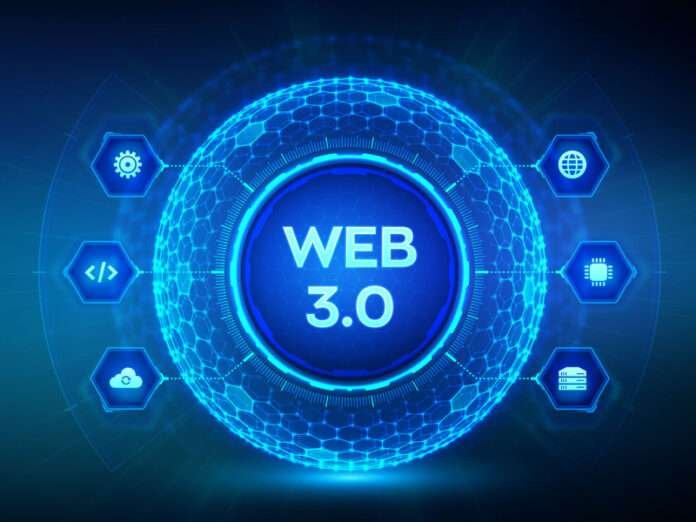The Evolution of Web3.0: A Decentralized Internet for the Future
Image Source: FreeImages
The internet has come a long way since its inception, and with the rise of Web3.0, we are entering a new era of decentralization and user empowerment. In this article, we will explore the key trends and predictions for Web3.0 in 2023 and beyond.
Understanding Web3.0: A New Generation of the Internet
Web3.0, also known as the decentralized web, is an emerging concept that aims to revolutionize the way we interact with the internet. Unlike its predecessors, Web1.0 and Web2.0, which were characterized by centralized control and limited user participation, Web3.0 is designed to be more user-centric, transparent, and secure.
The vision behind Web3.0 is to create an internet that is not controlled by a few tech giants but is instead owned and governed by its users. It leverages technologies like blockchain, cryptocurrencies, non-fungible tokens (NFTs), decentralized autonomous organizations (DAOs), and artificial intelligence (AI) to enable decentralized and trustless interactions.
The Top Trends and Predictions for Web3.0 in 2023
1. Tokenization of Real-World Assets
Tokenization, the process of representing real-world assets as digital tokens on a blockchain, will be a major trend in Web3.0. Industries ranging from real estate to supply chain management and finance will embrace this technology to enhance transparency, efficiency, and accessibility. By tokenizing assets, individuals can have fractional ownership, trade assets seamlessly, and eliminate intermediaries.
2. Rise of Decentralized Finance (DeFi)
Decentralized finance, or DeFi, will continue to gain momentum in 2023. DeFi platforms leverage blockchain technology to provide financial services without the need for traditional intermediaries like banks. This enables individuals to access services such as lending, borrowing, and trading directly, with increased transparency and lower costs.
3. Emergence of Decentralized Social Networks
Web3.0 aims to challenge the dominance of centralized social media platforms by enabling the development of decentralized social networks. These networks will give users more control over their data and content, eliminate censorship, and provide incentives for active participation. Elon Musk’s plans for a decentralized social network, where users pay with cryptocurrency to deter trolls and spambots, exemplify this trend.
4. Integration of Web3.0 and the Metaverse
The metaverse, a virtual reality space where users can interact with each other and digital assets, will play a significant role in the evolution of Web3.0. The integration of these two concepts will enable immersive experiences, virtual economies, and the creation of unique digital identities. Companies like Facebook, Microsoft, and Epic Games are already investing in metaverse development, highlighting the potential of this trend.
5. Advancements in Artificial Intelligence and Machine Learning
Artificial intelligence (AI) and machine learning (ML) will play a crucial role in Web3.0 applications. These technologies will enhance data analysis, improve user experiences, and enable more personalized and context-aware interactions. AI-powered chatbots, recommendation systems, and predictive analytics will become increasingly prevalent in the decentralized web ecosystem.
6. Focus on User Privacy and Data Ownership
Web3.0 promotes user privacy and data ownership as fundamental principles. With the increasing concerns around data breaches and surveillance, individuals are demanding greater control over their personal information. Blockchain technology provides a framework for secure and private data storage, giving users ownership and control over their digital identities.
7. Greenifying Web3.0: Sustainable Solutions
The energy consumption of blockchain networks has been a point of criticism for Web3.0 technologies. However, efforts are being made to address this challenge and make Web3.0 more sustainable. The transition from proof-of-work to proof-of-stake consensus algorithms, as seen in the Ethereum network, has significantly reduced energy consumption. In 2023, further advancements and innovations will focus on achieving a greener Web3.0 ecosystem.
8. Collaboration between Web3.0 and Traditional Web Technologies
Web3.0 will not completely replace traditional web technologies but rather coexist and collaborate with them. Web2.0 platforms will gradually integrate Web3.0 features, enabling a seamless transition for users. This collaboration will drive adoption and facilitate the gradual shift towards a decentralized internet.
The Future of Web3.0: Empowering Users in the Digital Age
Web3.0 represents a paradigm shift in the way we interact with the internet. It brings forth a future where users have sovereignty over their data, participate in decentralized economies, and enjoy enhanced privacy and security. While there are challenges to address, such as scalability, energy consumption, and regulatory frameworks, the trends and predictions for Web3.0 in 2023 indicate a promising future for a more inclusive, transparent, and user-centric internet.
As we move into this new era, individuals, businesses, and governments must embrace the opportunities and challenges of Web3.0 to shape a digital landscape that truly empowers its users and fosters innovation. Web3.0 is not just a technological revolution; it is a movement towards a more equitable and decentralized internet for all.
Peter Jonathan Wilcheck
Project Management PMO
Post Disclaimer
The information provided in our posts or blogs are for educational and informative purposes only. We do not guarantee the accuracy, completeness or suitability of the information. We do not provide financial or investment advice. Readers should always seek professional advice before making any financial or investment decisions based on the information provided in our content. We will not be held responsible for any losses, damages or consequences that may arise from relying on the information provided in our content.



